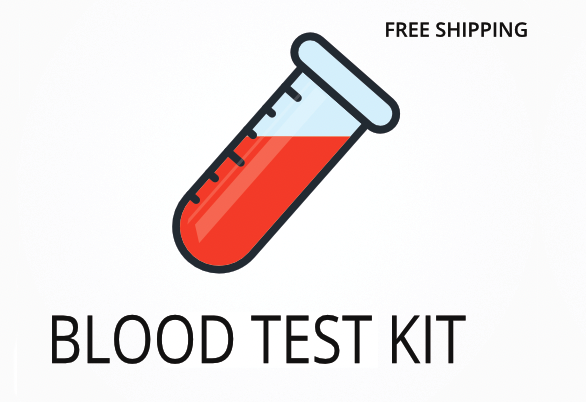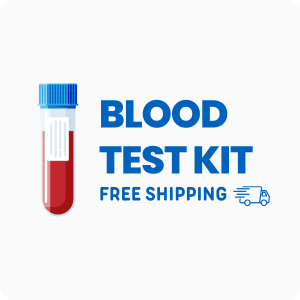Ordering the IgG Spices Sensitivity Test | Europe
Ordering the IgG Spices Sensitivity Test | Europe helps identify delayed immune reactions to a wide range of common spices, which can trigger symptoms like digestive discomfort, skin irritation, or sinus congestion. Interestingly, some people may react to spices they rarely eat, as even small amounts in processed foods can cause immune responses over time.
When ordering this test, you gain access to specific benefits:
- Pinpoints which spices may be causing symptoms such as bloating, cramps, or headaches.
- Helps guide dietary changes by identifying hidden triggers in everyday meals.
- Supports targeted elimination diets for clearer symptom relief.
- Reduces the need for guesswork when managing food-related reactions.
- Provides a detailed report for you and your healthcare provider to review together.
Who Should Consider Spice Sensitivity Screening
People who experience ongoing digestive issues, skin rashes, or sinus congestion after eating meals with mixed seasonings may benefit from this test. For example, someone who feels tired and bloated after eating restaurant food, but not home-cooked meals, could use this test to find out if certain spices are the cause.
Ordering this test may also be helpful in these situations:
- Frequent headaches or migraines after eating spicy or seasoned foods
- Recurring eczema or hives with no clear cause
- Chronic sinus congestion or sneezing after meals
- Joint pain that seems to flare up after eating out
- Unexpected fatigue after consuming foods labeled as “natural flavors”
Testing for spice sensitivities can help you avoid specific triggers, reduce symptoms like stomach pain or skin irritation, and make meal planning easier. Delaying this test may lead to continued discomfort and make it harder to identify which foods are causing your symptoms.
Preparing for Spice Allergy and Sensitivity Testing
Fasting is not required for this test, but always check the test kit instructions for any special preparation steps. Make sure to follow whatever guidance your doctor or healthcare practitioner gives you, as this helps ensure your sample is collected correctly and your results are as useful as possible.
Labs Included When Ordering Your IgG Spices Sensitivity Test
| Test Name | Reference Range | What This Biomarker Means | Low and High Levels of IgG Spices Sensitivity Test |
|---|---|---|---|
| Allspice IgG | < 2.0 | Allspice IgG measures immune response to allspice. High levels may indicate sensitivity, which can cause digestive or skin symptoms after eating foods containing allspice. | High levels mean your immune system is reacting to allspice, possibly causing symptoms.
Low levels mean you are unlikely to react to allspice. |
| Basil IgG | < 2.0 | Basil IgG checks for immune reactions to basil. This can help identify if basil is a hidden cause of symptoms like bloating or headaches. | High levels mean basil may be causing immune-related symptoms.
Low levels mean basil is not likely a trigger. |
| Bay Leaf IgG | < 2.0 | Bay leaf IgG detects immune response to bay leaf, which is often used in soups and stews. This helps pinpoint if bay leaf is a source of discomfort. | High levels mean bay leaf could be causing symptoms.
Low levels mean bay leaf is not likely to cause a reaction. |
| Cayenne IgG | < 2.0 | Cayenne IgG measures immune response to cayenne pepper, a common ingredient in spicy foods. This can help explain symptoms after eating hot or spicy dishes. | High levels mean cayenne may be causing immune symptoms.
Low levels mean cayenne is not likely a problem. |
| Cinnamon IgG | < 2.0 | Cinnamon IgG checks for immune reactions to cinnamon, which is found in many baked goods and drinks. This helps identify if cinnamon is a hidden trigger. | High levels mean cinnamon could be causing symptoms.
Low levels mean cinnamon is not likely to cause a reaction. |
| Cloves IgG | < 2.0 | Cloves IgG measures immune response to cloves, which are used in both sweet and savory dishes. This can help explain symptoms after eating foods with cloves. | High levels mean cloves may be causing immune symptoms.
Low levels mean cloves are not likely a trigger. |
| Cumin IgG | < 2.0 | Cumin IgG checks for immune reactions to cumin, a spice found in many international dishes. This helps identify if cumin is linked to symptoms. | High levels mean cumin could be causing symptoms.
Low levels mean cumin is not likely to cause a reaction. |
| Curry IgG | < 2.0 | Curry IgG measures immune response to curry blends, which often contain several spices. This can help explain symptoms after eating curry dishes. | High levels mean curry may be causing immune symptoms.
Low levels mean curry is not likely a problem. |
| Dill IgG | < 2.0 | Dill IgG checks for immune reactions to dill, which is used in pickles and salads. This helps identify if dill is a hidden cause of symptoms. | High levels mean dill could be causing symptoms.
Low levels mean dill is not likely to cause a reaction. |
| Fennel IgG | < 2.0 | Fennel IgG measures immune response to fennel, which is found in sausages and herbal teas. This can help explain symptoms after eating foods with fennel. | High levels mean fennel may be causing immune symptoms.
Low levels mean fennel is not likely a trigger. |
| Ginger IgG | < 2.0 | Ginger IgG checks for immune reactions to ginger, a common ingredient in both sweet and savory foods. This helps identify if ginger is linked to symptoms. | High levels mean ginger could be causing symptoms.
Low levels mean ginger is not likely to cause a reaction. |
| Horseradish IgG | < 2.0 | Horseradish IgG measures immune response to horseradish, which is used in sauces and condiments. This can help explain symptoms after eating foods with horseradish. | High levels mean horseradish may be causing immune symptoms.
Low levels mean horseradish is not likely a trigger. |
| Marjoram IgG | < 2.0 | Marjoram IgG checks for immune reactions to marjoram, a spice used in Mediterranean cooking. This helps identify if marjoram is linked to symptoms. | High levels mean marjoram could be causing symptoms.
Low levels mean marjoram is not likely to cause a reaction. |
| Mustard IgG | < 2.0 | Mustard IgG measures immune response to mustard, which is found in condiments and dressings. This can help explain symptoms after eating foods with mustard. | High levels mean mustard may be causing immune symptoms.
Low levels mean mustard is not likely a trigger. |
| Nutmeg IgG | < 2.0 | Nutmeg IgG checks for immune reactions to nutmeg, a spice used in desserts and drinks. This helps identify if nutmeg is linked to symptoms. | High levels mean nutmeg could be causing symptoms.
Low levels mean nutmeg is not likely to cause a reaction. |
| Oregano IgG | < 2.0 | Oregano IgG measures immune response to oregano, a common pizza and pasta seasoning. This can help explain symptoms after eating foods with oregano. | High levels mean oregano may be causing immune symptoms.
Low levels mean oregano is not likely a trigger. |
| Paprika IgG | < 2.0 | Paprika IgG checks for immune reactions to paprika, a spice used in many savory dishes. This helps identify if paprika is linked to symptoms. | High levels mean paprika could be causing symptoms.
Low levels mean paprika is not likely to cause a reaction. |
| Parsley IgG | < 2.0 | Parsley IgG measures immune response to parsley, which is used as a garnish and in salads. This can help explain symptoms after eating foods with parsley. | High levels mean parsley may be causing immune symptoms.
Low levels mean parsley is not likely a trigger. |
| Pepper (black) IgG | < 2.0 | Black pepper IgG checks for immune reactions to black pepper, a common table spice. This helps identify if black pepper is linked to symptoms. | High levels mean black pepper could be causing symptoms.
Low levels mean black pepper is not likely to cause a reaction. |
| Peppermint IgG | < 2.0 | Peppermint IgG measures immune response to peppermint, which is found in teas and candies. This can help explain symptoms after eating foods with peppermint. | High levels mean peppermint may be causing immune symptoms.
Low levels mean peppermint is not likely a trigger. |
| Rosemary IgG | < 2.0 | Rosemary IgG checks for immune reactions to rosemary, a herb used in roasted dishes. This helps identify if rosemary is linked to symptoms. | High levels mean rosemary could be causing symptoms.
Low levels mean rosemary is not likely to cause a reaction. |
| Sage IgG | < 2.0 | Sage IgG measures immune response to sage, which is used in stuffing and savory dishes. This can help explain symptoms after eating foods with sage. | High levels mean sage may be causing immune symptoms.
Low levels mean sage is not likely a trigger. |
| Thyme IgG | < 2.0 | Thyme IgG checks for immune reactions to thyme, a herb used in many savory recipes. This helps identify if thyme is linked to symptoms. | High levels mean thyme could be causing symptoms.
Low levels mean thyme is not likely to cause a reaction. |
| Vanilla IgG | < 2.0 | Vanilla IgG measures immune response to vanilla, which is found in desserts and drinks. This can help explain symptoms after eating foods with vanilla. | High levels mean vanilla may be causing immune symptoms.
Low levels mean vanilla is not likely a trigger. |
| Total IgE | 0-100 | Total IgE measures the overall level of allergy-related antibodies in your blood. This helps show if your immune system is reacting to one or more allergens. | High levels mean your immune system is reacting to allergens, possibly causing symptoms.
Low levels mean you are less likely to have allergic reactions. |
Reference ranges may change slightly as labs update their methods and standards.
IgG Spices Sensitivity Test FAQ
Is there IgG Spices Sensitivity Test testing near me?
This test is provided as a kit that you can use locally, and you can find a nearby draw location using the link at the top of the page. For those who experience symptoms like digestive upset or skin irritation after eating out, having a convenient collection site makes it easier to get tested without delay.
How do I interpret the test results?
While your treating physician should review your results, we also offer a one-on-one test results review with our clinical team to help you understand your report and next steps.
What is the cost of the test?
The price listed for this test includes standard shipping to you and return shipping to the lab, though draw fees may apply. Ordering this test can help you quickly identify which spices are causing symptoms, so you can make changes and feel better sooner.
How often should I retest?
Retesting is usually recommended every 6 to 12 months, especially if your symptoms change or you adjust your diet. Regular testing helps track changes in your immune response and ensures your food choices remain symptom-free.
How accurate is the test?
This test uses enzyme-linked immunosorbent assay (ELISA) to measure IgG antibodies to specific spices, with a specificity of 98% and sensitivity of 97%. TrueHealthLabs.com partners with CLIA-certified and CAP-certified laboratories to uphold rigorous testing standards for dependable results.
Important Notes
READ: These tests are available for European countries only.
Medical Review Board
Reviewed by Jeff Donohue M.D. from Body Logic and Brady Hurst DC, CCCN. Written by True Health Lab’s team of editorial health contributors.
Disclaimer: This information is for educational purposes only and not intended as medical advice. Consult your healthcare provider for personalized guidance.
Why Customers Trust True Health Labs - What People are saying
Also rated 4.6 out of 5 based on 3452 ShopperApproved reviews- See all TrueHealthLabs.com reviews.







